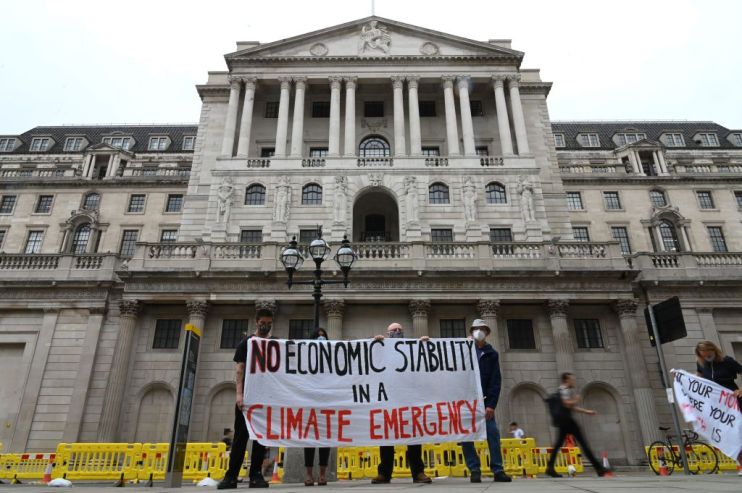BoE: Considering the climate would have held back stimulus

The Bank of England has said it did not attach any climate-related conditions to its major loan scheme as this would have “frustrated” the effort to support companies quickly.
However, Bank official Sarah Breeden said that the BoE is “considering” attaching green strings to its future corporate bond purchases.
Threadneedle Street has been criticised for supporting big polluters through its Covid corporate financing facility (CCFF). Before coronavirus, the Bank repeatedly stressed its green credentials.
Campaign group Positive Money’s analysis showed that 56 per cent, or more than £10bn, of the money lent out through the CCFF went to carbon-intensive sectors such as aviation and chemicals.
Under the CCFF, the Bank of England lends money by buying up the short-term bonds of companies. It currently holds around £17bn of “commercial paper” through the programme.
German chemicals firms Bayer and BASF and airlines Easyjet and Ryanair were among the recipients.
Bank says action had to be broad and fast
Sarah Breeden, the Bank of England official overseeing climate change issues, today defended the BoE’s decision.
She told Parliament’s environmental audit committee that the interventions had to be “big, broad and fast”.
Breeden said telling firms they had to disclose the risks they pose to the climate would have “frustrated that underlying objective of getting money out quickly”.
The Bank official stressed that the CCFF is a short-term tool. “It is not in my view the vehicle that is going to drive the multi-year transition that I absolutely agree that our economy needs,” she said.
However, Green Party MP Caroline Lucas said the Bank had missed a chance. “If we’re not careful, we’re going to be jumping out of the Covid frying pan into the climate fire,” she said.
Breeden said the Bank was “considering” attaching climate-based requirements to its future bond purchases under its quantitative easing programme.